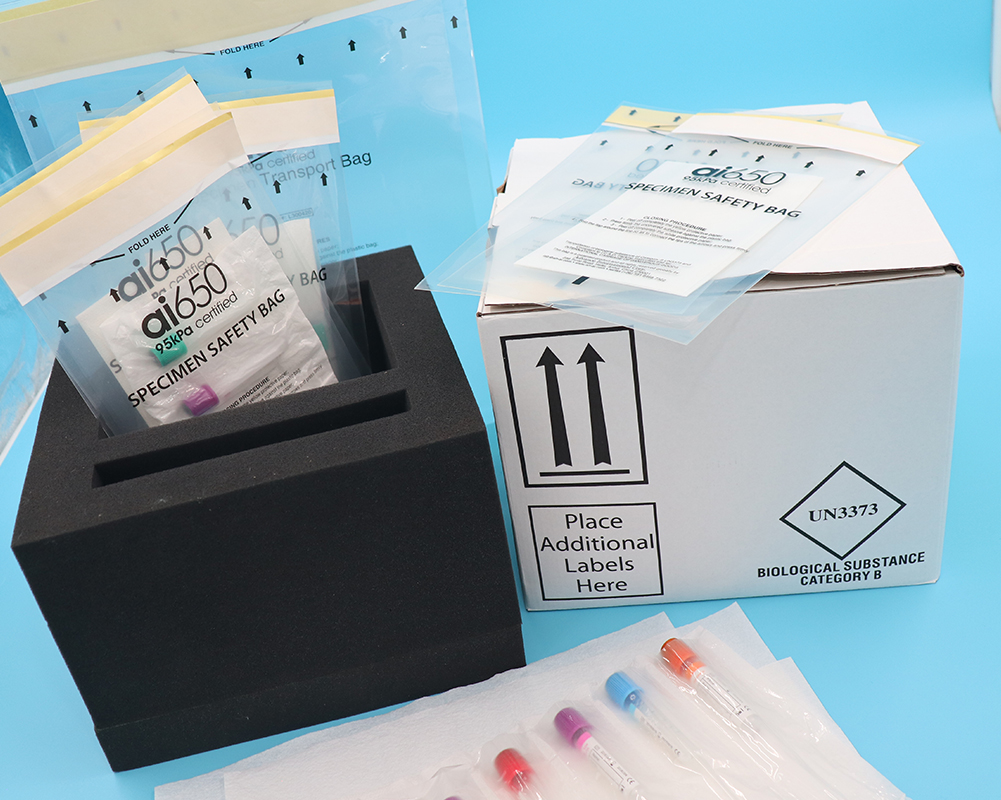The transport of biological samples requires specific conditions
The transport of biological samples requires specific conditions to ensure the integrity and usability of the
samples.
These conditions primarily include:
1.Temperature control: Most biological samples need to be stored and transported at specific
temperatures to prevent degradation. This could mean keeping samples frozen, refrigerated, or at room
temperature, depending on the sample type.
2.Prevention of contamination: It’s crucial to avoid microbial or cross-sample contamination, which means
using sterile containers and maintaining a clean working environment during packing and handling.
3.Protection from physical damage: Samples must be appropriately cushioned and secured to prevent
damage from shocks, pressure, or breaks during transport.
4.Labeling and documentation: Accurate labeling and clear documentation are essential for tracking the
chain of custody and ensuring samples are traceable and correctly identified.
5.Regulatory compliance: Depending on the nature of the biological material and international
regulations (such as those imposed by the International Air Transport Association, IATA), there may be
specific rules that must be followed regarding packaging, labeling, and transportation methods.
The necessity of specialized transport bags in this context is significant for several reasons:
- Maintenance of temperature stability: Insulated transport bags can keep samples cold or frozen using ice packs or dry ice, which is critical for maintaining sample integrity during transit.
- Protection from physical impact: Transport bags are usually designed to absorb shock and protect against pressure, reducing the risk of damage to the samples inside.
- Containment: If there is any leakage or breakage of the primary sample container, the transport bag can serve as a secondary containment to prevent the material from contaminating the environment or other materials.
- Easy to carry and identify: Many transport bags come with handles or straps for easy carrying, and their external surfaces can be easily labeled with sample information and biohazard symbols for quick identification.
- Compliance with regulations: Some transport bags are designed to meet specific regulatory requirements for shipping biological materials, such as leakproof and puncture-resistant designs.
In summary, the use of transport bags is essential for ensuring the safe, secure, and compliant transport
of biological samples, helping to maintain their integrity and ensuring they arrive at their destination in a
usable condition.


No responses yet